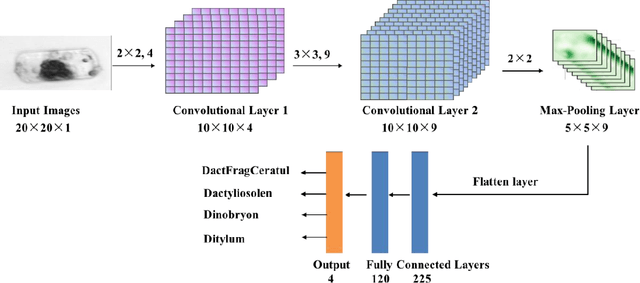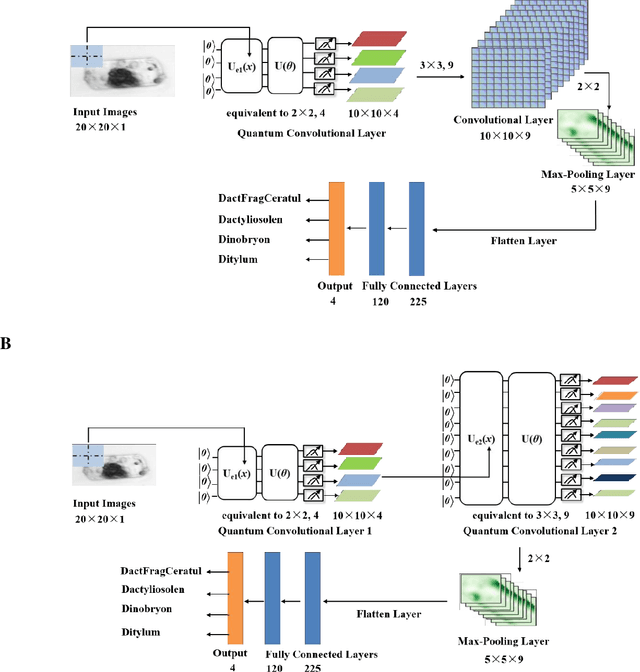Ruimin Shang
Hybrid quantum-classical convolutional neural network for phytoplankton classification
Mar 07, 2023



Abstract:The taxonomic composition and abundance of phytoplankton, having direct impact on marine ecosystem dynamic and global environment change, are listed as essential ocean variables. Phytoplankton classification is very crucial for Phytoplankton analysis, but it is very difficult because of the huge amount and tiny volume of Phytoplankton. Machine learning is the principle way of performing phytoplankton image classification automatically. When carrying out large-scale research on the marine phytoplankton, the volume of data increases overwhelmingly and more powerful computational resources are required for the success of machine learning algorithms. Recently, quantum machine learning has emerged as the potential solution for large-scale data processing by harnessing the exponentially computational power of quantum computer. Here, for the first time, we demonstrate the feasibility of quantum deep neural networks for phytoplankton classification. Hybrid quantum-classical convolutional and residual neural networks are developed based on the classical architectures. These models make a proper balance between the limited function of the current quantum devices and the large size of phytoplankton images, which make it possible to perform phytoplankton classification on the near-term quantum computers. Better performance is obtained by the quantum-enhanced models against the classical counterparts. In particular, quantum models converge much faster than classical ones. The present quantum models are versatile, and can be applied for various tasks of image classification in the field of marine science.
Quantum Recurrent Neural Networks for Sequential Learning
Feb 07, 2023



Abstract:Quantum neural network (QNN) is one of the promising directions where the near-term noisy intermediate-scale quantum (NISQ) devices could find advantageous applications against classical resources. Recurrent neural networks are the most fundamental networks for sequential learning, but up to now there is still a lack of canonical model of quantum recurrent neural network (QRNN), which certainly restricts the research in the field of quantum deep learning. In the present work, we propose a new kind of QRNN which would be a good candidate as the canonical QRNN model, where, the quantum recurrent blocks (QRBs) are constructed in the hardware-efficient way, and the QRNN is built by stacking the QRBs in a staggered way that can greatly reduce the algorithm's requirement with regard to the coherent time of quantum devices. That is, our QRNN is much more accessible on NISQ devices. Furthermore, the performance of the present QRNN model is verified concretely using three different kinds of classical sequential data, i.e., meteorological indicators, stock price, and text categorization. The numerical experiments show that our QRNN achieves much better performance in prediction (classification) accuracy against the classical RNN and state-of-the-art QNN models for sequential learning, and can predict the changing details of temporal sequence data. The practical circuit structure and superior performance indicate that the present QRNN is a promising learning model to find quantum advantageous applications in the near term.
 Add to Chrome
Add to Chrome Add to Firefox
Add to Firefox Add to Edge
Add to Edge